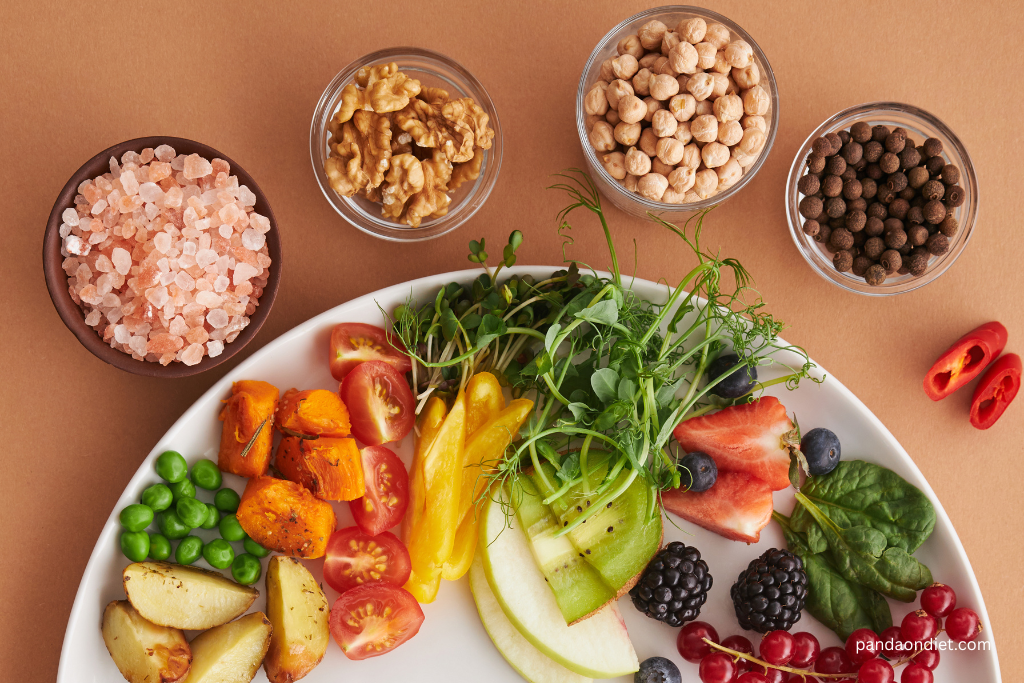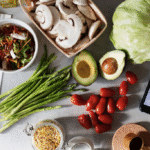Potassium is a vital mineral that supports heart health, muscle strength, and nerve function. Consuming potassium-enriched foods helps you maintain fluid balance, regulate blood pressure, and reduce the risk of kidney stones. Many people do not get enough potassium from their diet, which can lead to fatigue, muscle cramps, or irregular heartbeats. The good news is that potassium-rich foods are easy to find in everyday meals.
This article will guide you through the best foods high in potassium, their benefits, and how you can add them to your diet in simple ways.
Why Potassium Matters
Potassium is one of the most essential minerals for overall health. It is an electrolyte, which means it helps conduct electrical signals in the body. These signals control functions like muscle contractions, heart rhythms, and fluid balance. Without enough potassium, these processes can be disrupted, which affects energy, strength, and long-term health.
Potassium also works closely with sodium to keep blood pressure at safe levels. While sodium tends to increase blood pressure, potassium helps relax blood vessel walls and reduce the adverse effects of excess sodium. This balance is vital for heart health, especially for people with hypertension or a family history of heart disease.
The mineral also supports the nervous system. Every nerve impulse relies on potassium to move signals between cells. This makes potassium essential for proper brain function, quick reflexes, and smooth muscle movements. When levels drop too low, people often experience cramps, weakness, or even irregular heartbeats.
Kidney health also depends on potassium. The kidneys filter blood and manage fluid levels in the body. Potassium supports this process by working as a natural regulator. A diet rich in potassium helps reduce the risk of kidney stones and promotes long-term kidney function.
Another reason potassium matters is its role in preventing strokes. Studies show that people who eat more potassium-rich foods have a lower risk of stroke. This protective effect comes from potassium’s ability to relax blood vessels, lower blood pressure, and reduce strain on the heart.
Potassium is also essential for athletes and active people. When they exercise, the body removes electrolytes. During this time, there are many potassium losses through sweat. Replenishing these minerals helps muscles recover, reduces cramps, and keeps energy levels stable. Even for people who are not athletes, daily potassium intake plays a key role in maintaining energy levels and reducing fatigue.
Key Benefits of Potassium
- Helps maintain normal blood pressure by balancing sodium
- Supports muscle and nerve health through proper signal transmission
- Reduces risk of stroke by improving circulation and vessel function
- Balances fluids in the body to prevent dehydration and swelling
- It saves the kidney by lowering the chance of kidney stones
- Enhances energy levels and reduces muscle cramps
- Supports healthy digestion by helping smooth muscle function in the intestines
Potassium is not a nutrient that should be overlooked. Many people focus on protein, carbohydrates, or vitamins, but ignore the importance of minerals like potassium. Making small but consistent changes in daily eating habits can help you meet your needs and enjoy long-term benefits. Including potassium-rich foods is one of the simplest and most effective ways to protect your heart, muscles, and overall health.
Daily Potassium Needs
The daily dose varies with age and gender:
- Adults: 2,600–3,400 mg per day
- Children: 2,000–2,500 mg per day
- Pregnant or breastfeeding women: 2,500–2,900 mg per day
Most people fall short of these values. Adding foods high in potassium to daily meals can help close this gap.
Top Foods High in Potassium
Here is a detailed list of potassium-rich foods you can enjoy regularly.
1. Bananas
Bananas are a classic source of potassium. One medium banana provides about 422 mg. They are easy to eat on the go, blend into smoothies, or slice over oatmeal.
2. Sweet Potatoes
One medium baked sweet potato contains about 542 mg of potassium. Sweet potatoes also provide fibre and vitamin A. You can roast, mash, or add them to soups.
3. Spinach
One cup of cooked spinach gives you 839 mg of potassium. Spinach is easy to add to salads, smoothies, or pasta dishes.
4. Avocados
One medium avocado offers around 690 mg of potassium. Avocados are rich in healthy fats and can be spread on toast or added to salads.
5. White Beans
One cup of cooked white beans contains about 1,000 mg of potassium. They are also a great source of protein and fibre.
6. Salmon
A 3-ounce serving of salmon provides 534 mg of potassium. Salmon also supports heart health with omega-3 fatty acids.
7. Yoghurt
One cup of plain yoghurt contains 573 mg of potassium. It also provides calcium and probiotics for gut health.
8. Oranges
One medium orange has 237 mg of potassium. Fresh orange juice also contains potassium, though whole fruit is better for fibre.
9. Mushrooms
One cup of cooked mushrooms gives you 428 mg of potassium. You can grill mushrooms, sauté them, or add them to soups.
10. Tomatoes
One cup of tomato juice delivers 556 mg of potassium. Fresh tomatoes also provide vitamin C and antioxidants.
Easy Ways to Add Potassium-Rich Foods
Adding more potassium to your meals does not have to be hard. Small changes in daily food choices can make a big difference in meeting your potassium needs. Simple swaps, like using avocado instead of butter or enjoying yoghurt as a snack, are easy steps that support better health.
By including a variety of potassium-rich foods, you can boost energy, support your heart, and keep your body in balance.
- Add banana slices to cereal or oatmeal.
- Snack on yoghurt with fruit.
- Roast sweet potatoes as a side dish.
- Use avocado as a spread instead of butter.
- Add beans to soups, salads, and rice bowls.
- Grill salmon once or twice a week.
Potassium-Rich Meal Ideas
Breakfast
- Oatmeal with bananas and yoghurt
- Smoothie with spinach, banana, and orange juice
Lunch
- Avocado toast with tomatoes
- Bean salad with spinach and mushrooms
Dinner
- Grilled salmon with roasted sweet potatoes
- Spinach and mushroom stir-fry
Risks of Too Little or Too Much Potassium
Having low potassium levels in the body causes muscle weakness, fatigue, and irregular heartbeats. Too much potassium, often from supplements or kidney problems, can also harm the heart.
Signs of Low Potassium
- Muscle cramps
- Constipation
- Fatigue
- Irregular heartbeat
Signs of High Potassium
- Nausea
- Chest pain
- Difficulty breathing
- Heart rhythm changes
If you suspect a potassium imbalance, consult a doctor before making changes.
Potassium and Heart Health
Studies show that diets rich in potassium lower the risk of heart disease. Potassium helps the body balance sodium, which reduces strain on blood vessels. For people with high blood pressure, eating more potassium can have a protective effect.
7-Day Potassium-Rich Meal Plan
This simple plan shows how easy it is to meet daily potassium needs by adding fruits, vegetables, beans, and other whole foods into everyday meals.
Here is a simple plan that shows how to meet daily potassium needs through balanced meals.
| Day | Breakfast | Lunch | Dinner |
| 1 | Oatmeal with banana slices and yoghurt | Avocado toast with tomato slices | Grilled salmon with roasted sweet potatoes and spinach |
| 2 | Smoothie with spinach, orange juice, and banana | Bean salad with white beans, mushrooms, and cucumbers | Chicken fry with broccoli and mushrooms with brown rice |
| 3 | Whole-grain toast with avocado and boiled eggs | Lentil soup with spinach and a side of fresh orange | Baked potato topped with Greek yoghurt and sautéed mushrooms |
| 4 | Yoghurt parfait with mixed berries and walnuts | Spinach and white bean wrap with avocado spread | Grilled salmon with roasted potatoes and steamed broccoli |
| 5 | Banana smoothie with almond milk and oats | Chickpea salad with spinach, tomatoes, and cucumber | Turkey chilli with beans and mushrooms |
| 6Omelette | set with spinach and mushrooms | Quinoa bowl with avocado, beans, and roasted veggies | Baked sweet potato with salmon and steamed greens |
| 7 | Whole-grain cereal with banana slices and milk | Spinach salad with white beans, avocado, and orange segments | Grilled chicken with mashed potatoes and mushrooms. |
FAQs
What foods are highest in potassium?
Sweet potatoes, beans, spinach, bananas, and avocados are the highest sources of potassium.
How much potassium should I eat per day?
Most adults should aim for 2,600–3,400 mg per day from natural foods.
Can I get too much potassium from food?
No, because it is rare to have much potassium from food. Most cases of high potassium come from supplements or kidney issues.
Are bananas the best source of potassium?
Bananas are good, but beans, spinach, and sweet potatoes contain more potassium per serving.
Do potassium-rich foods help with blood pressure?
Yes, foods high in potassium help control blood pressure by balancing sodium levels.
Should I take potassium supplements?
Most people can meet their needs through diet. Only take supplements under medical advice.
Final Words
Potassium is an essential mineral that supports heart, muscle, and nerve health. Eating a variety of foods high in potassium, such as bananas, beans, spinach, avocados, and salmon, helps maintain balance in the body. Simple meals with these foods can protect against high blood pressure, boost energy, and improve overall health. Focus on natural sources and build potassium-rich meals into your daily routine for long-term benefits.


